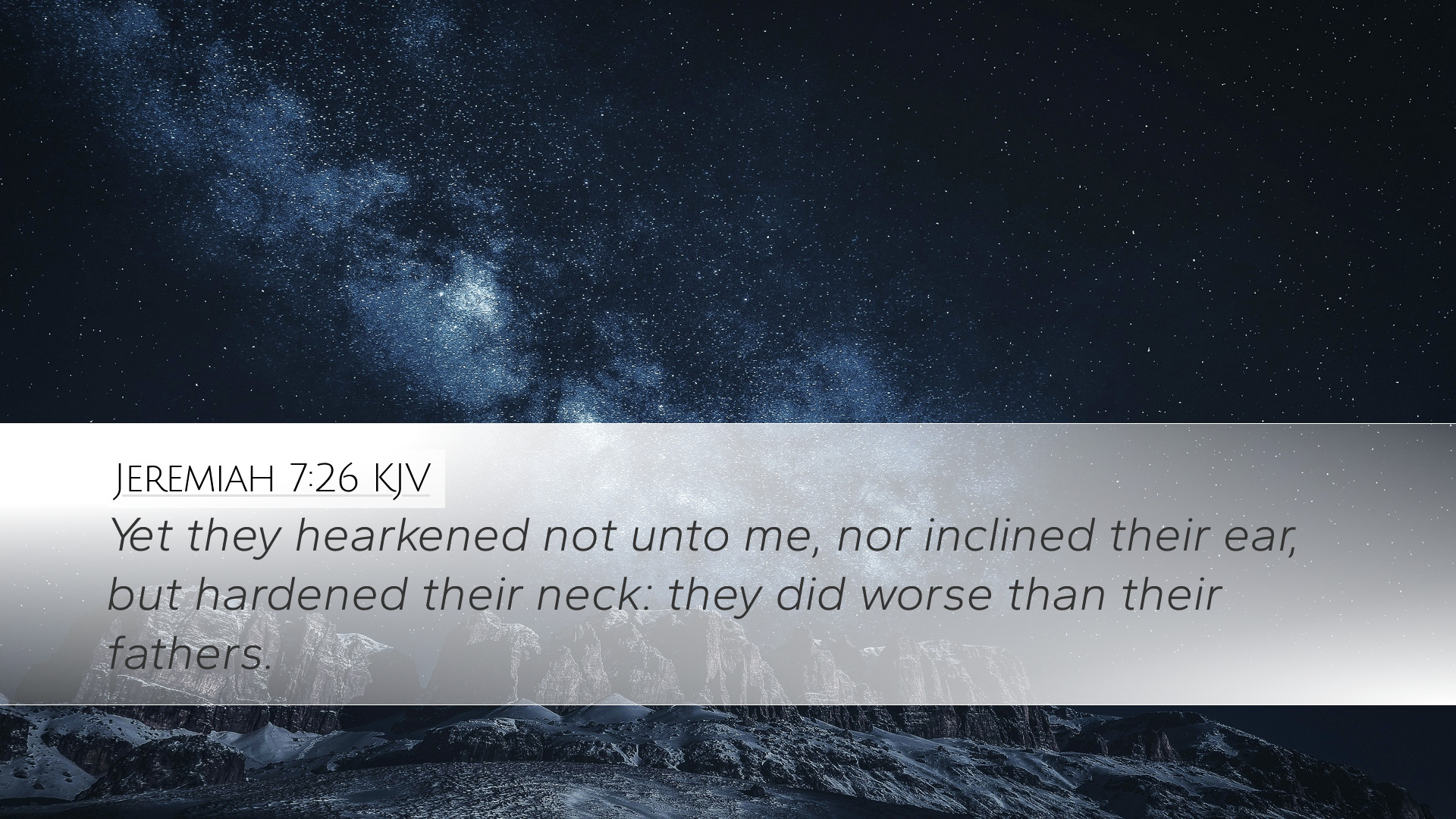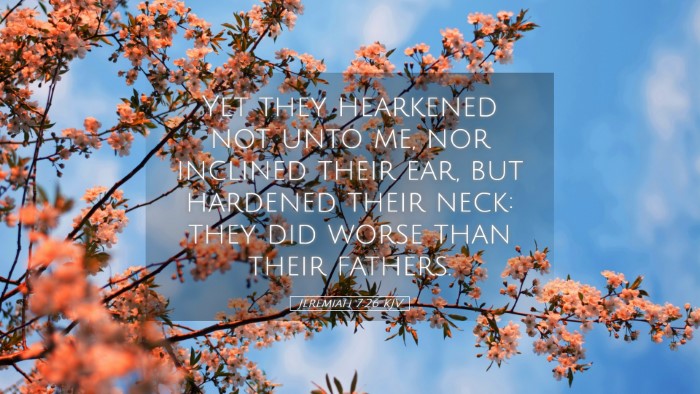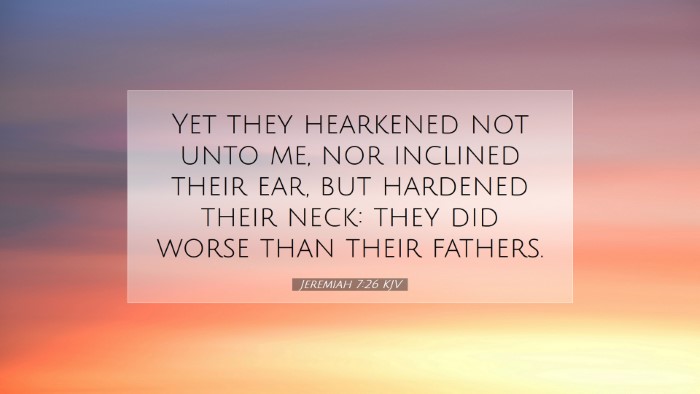Bible Commentary on Jeremiah 7:26
Verse Text: "Yet they hearkened not unto me, nor inclined their ear, but hardened their neck: they did worse than their fathers."
Introduction
Jeremiah 7:26 captures a critical moment in the prophetic ministry of Jeremiah, revealing the obstinacy and continual disobedience of the people of Judah despite repeated warnings from God. This verse occurs within a broader message where God, through Jeremiah, calls out the idolatry and injustice rampant among His people.
Contextual Analysis
The preceding verses (Jeremiah 7:21-25) demonstrate God's position regarding sacrifices and rituals that are void of genuine repentance and righteousness. The heart of the commentary on this verse encompasses themes of rebellion, prophecy, and the character of God in His dealings with humanity.
Commentary Insights
Obstinate Disobedience
Matthew Henry notes that the "hardening of the neck" signifies a stubborn refusal to listen to counsel or correction. The imagery of a neck symbolizes the refusal to bow to divine authority and submit to divine instruction. This reflects the spiritual condition of the nation that has grown callous to the calls of God through His prophets. The phrase underscores the severe spiritual degeneration occurring among God's people.
Worsening State
Albert Barnes elaborates on the statement that they did "worse than their fathers." This suggests a regression in spiritual condition and morality, where the current generation had exacerbated the sins of previous generations. The implication is profound; it suggests that rather than learning from historical failures, they had compounded contempt for God's commandments, indicating a deepening level of iniquity.
Historical Context
Adam Clarke provides insight into the historical backdrop of Jeremiah’s time, characterized by idolatry, social injustice, and a disconnection from genuine worship. The people's failure to hearken to God shows a systemic issue in their culture, where rebellion against divine authority became ingrained. Clarke discusses that this obstinacy led to dire consequences as history would eventually reveal with the Babylonian captivity and destruction of Jerusalem.
Theological Implications
The refusal to heed God's warnings encapsulated in this verse speaks volumes about human nature's propensity towards sin. Believers and scholars are invited to consider how neglecting divine counsel not only leads to individual degradation but also to collective spiritual decay. This presents a warning for contemporary readers about the importance of responsiveness to God's voice.
Application for Today's Church
-
Listening to God's Voice: The church is called to remain vigilant in hearing and responding to God's Word, just as Jeremiah urged the Israelites.
-
Spiritual Reflection: Individuals should reflect on personal faith practices to ensure they are aligned with genuine worship rather than formalism.
-
Teaching and Correction: There is a critical need for churches to teach the importance of correction from God's Word and to encourage believers to have open hearts and readiness to change.
Conclusion
Jeremiah 7:26 serves as a timeless admonition against the hardness of heart that can arise in the face of divine apathy. The insights from notable commentators provide depth to our understanding of this scripture, emphasizing the human tendency toward stubbornness and the necessity for a posture of humility and openness to God's guidance. For pastors, students, and theologians, this verse stands as both a warning and an invitation to pursue authentic relationships with God, characterized by responsiveness and genuine repentance.


